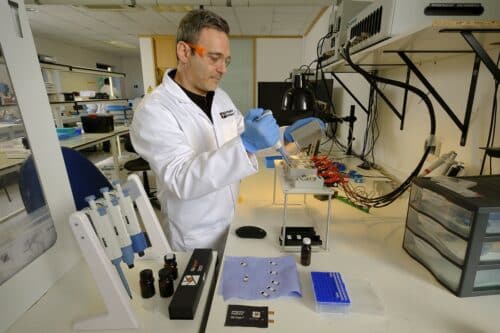Graphene based biosensors can help medics to predict the chances of liver transplant developing a complication.
Researchers have developed a diagnostic tool that predicts the development of any complications after liver transplant. The device uses a sample of bile from the donor’s liver to assess the organ’s risk of biliary complications before it is transplanted. The device consists of electrodes that will detect any risk of complications from the bile and quickly translate the signal into a “high risk/low risk” message on the device.

Doctors transplant over 30000 livers annually out of which 30 percent of transplanted livers develop biliary complications. These complications determine the long term survival of patients after the transplant.
Claus Marquordt, chief executive and co-founder at Integrated Graphene, said that the test – which he hopes will be used by the NHS in the future – could transform liver transplants, moving healthcare “more towards preventative medicine”. “The beauty of the technology is that it can be reproduced quickly, at very low cost, with no drop-off in performance. When healthcare resource is under enormous pressure, this is a key part of how health outcomes can be improved at scale, so it’s hugely exciting to be involved in projects like this.”
Dr Sofia Ferreira-Gonzalez, chief executive and co-founder of SensiBile, said: “Our experimental work helped us to understand that the damage that leads to biliary complications is already present before transplantation. By assessing which donors’ livers have a high probability of biliary complications development, we aim to provide the surgeons with the necessary information to make informed decisions.”
“Our test will help transplant surgeons around the world to improve the selection process for organs, increase the pool of available donor livers and reduce the rate of biliary complications,” added Hannah Esser, transplant surgeon and co-founder of SensiBile.






